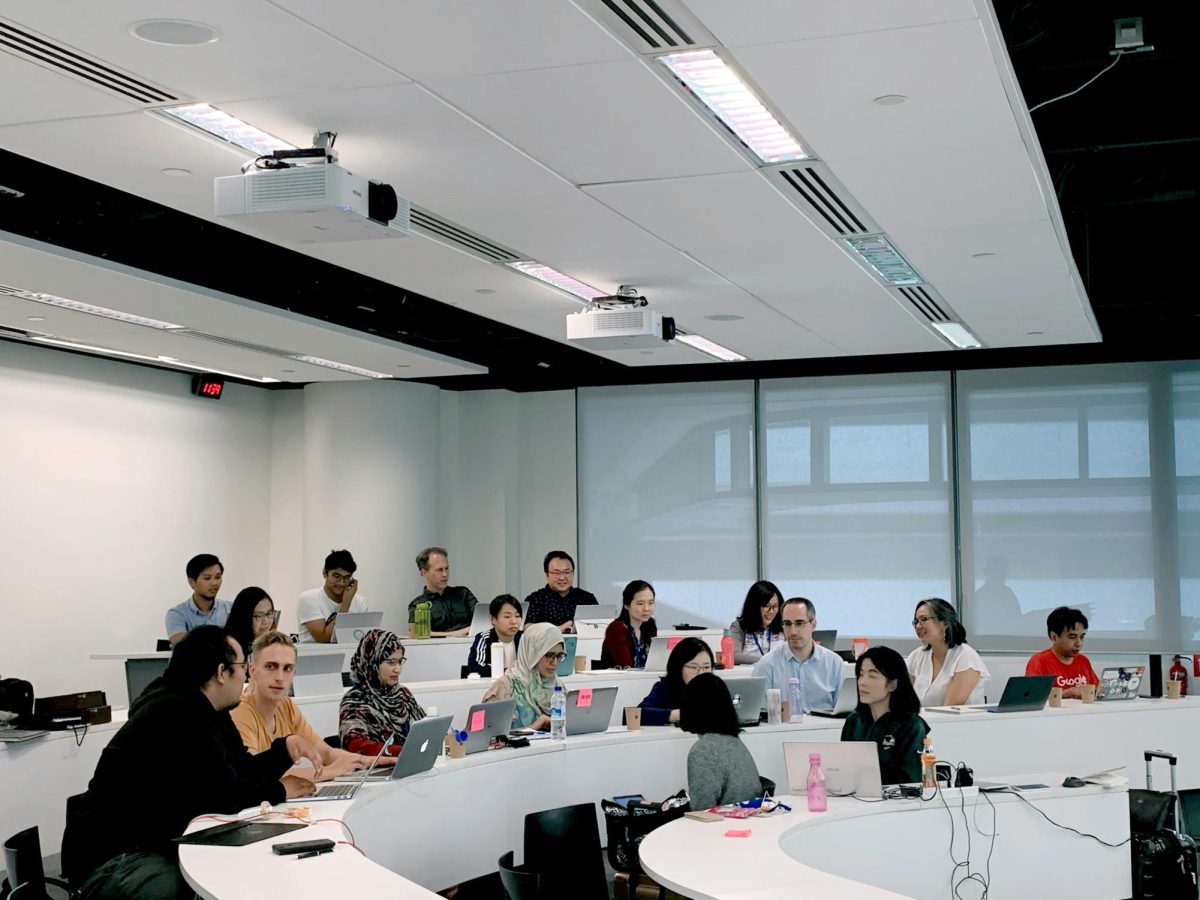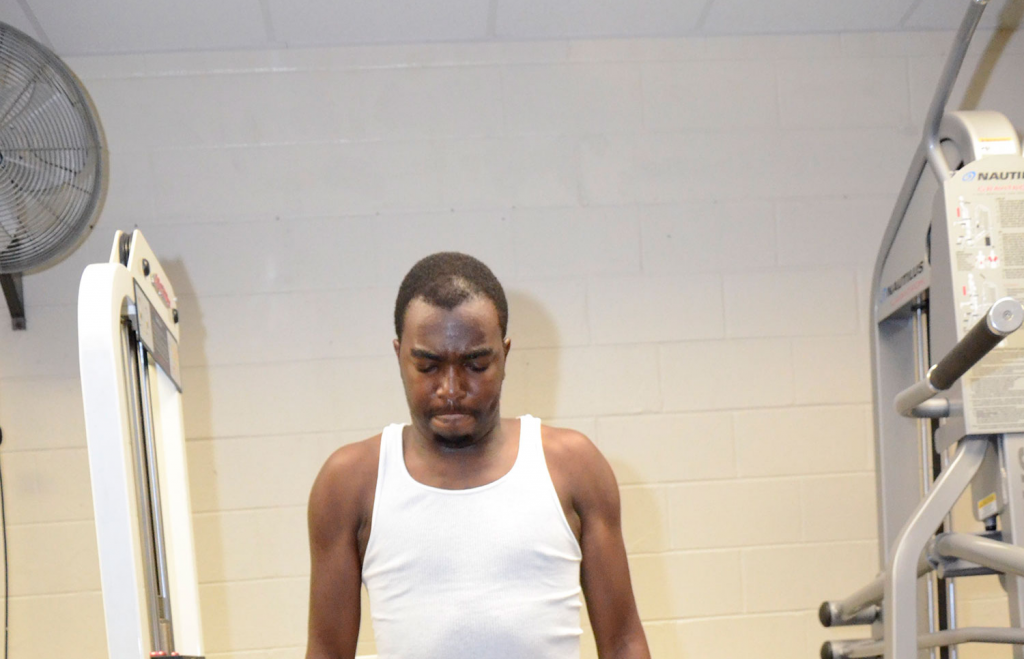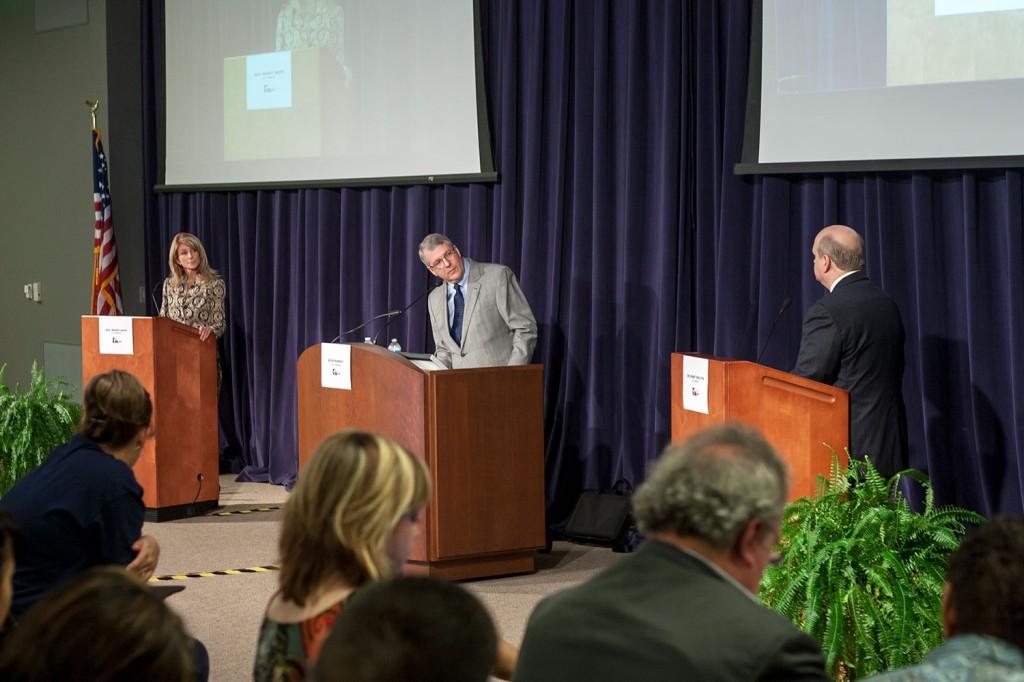By Shirlett Warren/editor-in-chief
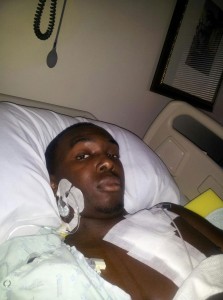
Photo courtesy of Karreen Momo
A 21-year-old NE student took a few semesters off in 2011. He was laid off from his job, placed on academic suspension and could not join the military.
Kareen Momo was diagnosed with congestive heart failure earlier that spring. In November 2011, he was placed on a heart transplant list and given one year to live.
“I didn’t know how to handle it,” Momo said. “I wanted to finish school and move on with life.”
When he was 19, Momo said he made a decision to join the military to help pay for college. A week before he was scheduled to leave, his mother asked him to get a medical check up.
“Mother knows best,” he said.
X-rays revealed that the right side of his heart was dead and that his left side was pumping at 5 percent.
“My doctor said she didn’t know how I was alive,” he said.
His doctor scheduled an emergency surgery to connect an IV pump in his arm to deliver medicine to his heart 24 hours a day, seven days a week.
“I had to change the bag every 72 hours,” Momo said. “I wore it like a backpack.”
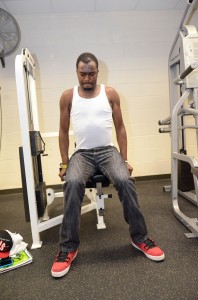
A month later, he had another surgery to implant a defibrillator, a device used to apply electric currents directly to the heart to stop uncontrollable twitching of the heart’s muscles and open blood circulation.
Momo said he tried to carry on life as usual. He played basketball and football and wore a hoodie to cover his IV pack. He tried to stay in school, but one day he came to class with labored breathing and had to be hospitalized.
“I was taken away on an ambulance,” he said. “It was a big, embarrassing scene.”
Not only did Momo have to leave school, he was laid off from his job because of his health condition. He said he was cut off from his health insurance, and, as a result, he was put on the bottom of the transplant list.
NE counselor James Varnado, who recently started working with Momo to help him with his academic recovery, said a heart transplant can bankrupt a family.
The United Network for Organ Sharing estimates the average billed charges of a heart transplant in the U.S. were nearly $1 million in 2011.
“There’s a sense of defeat when you’re going through these kinds of health issues,” Varnado said.
Momo’s mother, Bernice, also worked for Harris Methodist and said she had to fight to get her son on her insurance. She said she was working against time because of her son’s health prognosis.
“It was hard to deal with because there was no one you could talk to,” she said. “But once you trust in God, there is nothing impossible.”
In August 2011, 3,202 people were on heart transplants wait lists at U.S. transplant centers. Momo was finally added to his mother’s insurance policy in January 2012 and subsequently placed back to the top of the wait list.
“Some of the factors in getting a heart are things like blood type, weight and height,” Momo said. “I waited seven months.”
In January, he lost a chance to get a heart because he missed a phone call while he was in choir practice at church, and the heart went to another patient, he said.
Four months later, he said he was playing volleyball when he received another phone call.
“They told me they had a heart for me,” Momo said. “I almost dropped the phone.”
At 7 a.m. May 15, Momo had open heart surgery. The operation occurred the day after Mother’s Day.
“It was more than a present from God,” his mother Bernice Momo said. “It was the greatest gift of my life.”
Momo said the surgery was successful.
“They used a power saw to open my chest, but it only took a week for the scar to heal,” he said.
He was discharged from the hospital three days after his surgery.
“I work in ICU, and I see patients who stay in the hospital for a week,” his mother said. “To see this happen, I just praise God every day of my life. It was a miracle.”
Momo said he just wanted to get home.
“When you’re hungry for something, you just get it,” he said.
Once he was home, he said he was treated like a newborn baby, and he had to visit his doctor twice a week.
“My recovery was very painful. I couldn’t move. My range of motion was limited,” he said. “My body wasn’t used to the heart, so I’d get tired quickly, but [now] I feel full of more energy and breathe better.”
Today, he visits his doctor only once every two weeks.
“He’s a walking miracle,” Varnado said.
Momo said he wants to finish school at the University of North Texas or at Fordham University in New York.
“I didn’t hesitate to come back to school,” he said. “I want to be a physical therapist and work with people with sports injuries.”
He still has challenges and has to take medicine every day to make sure his body doesn’t reject his new heart, he said.
“It’s [taking medicine] for life,” he said. “But it’s a small price to pay to stay alive.”















